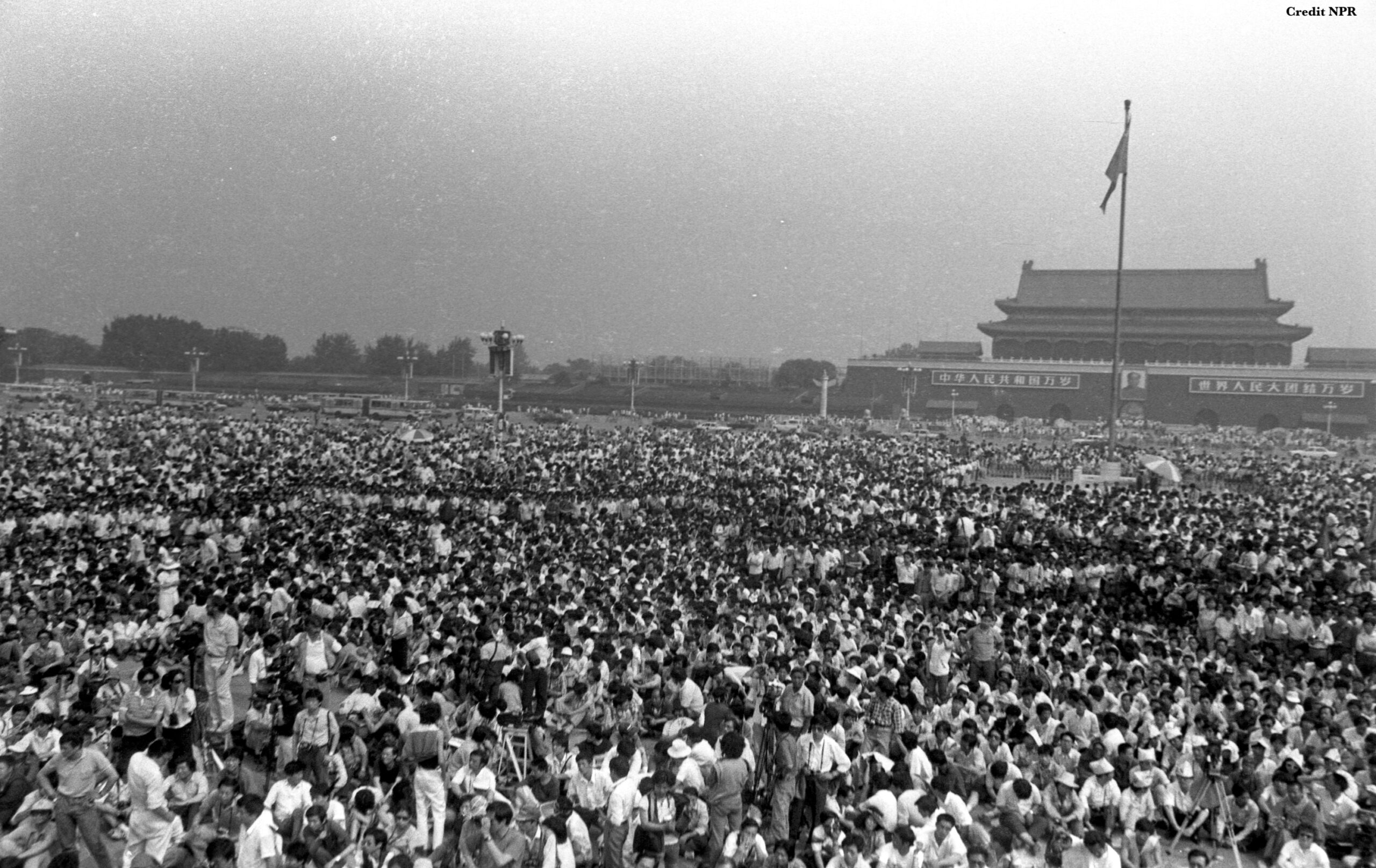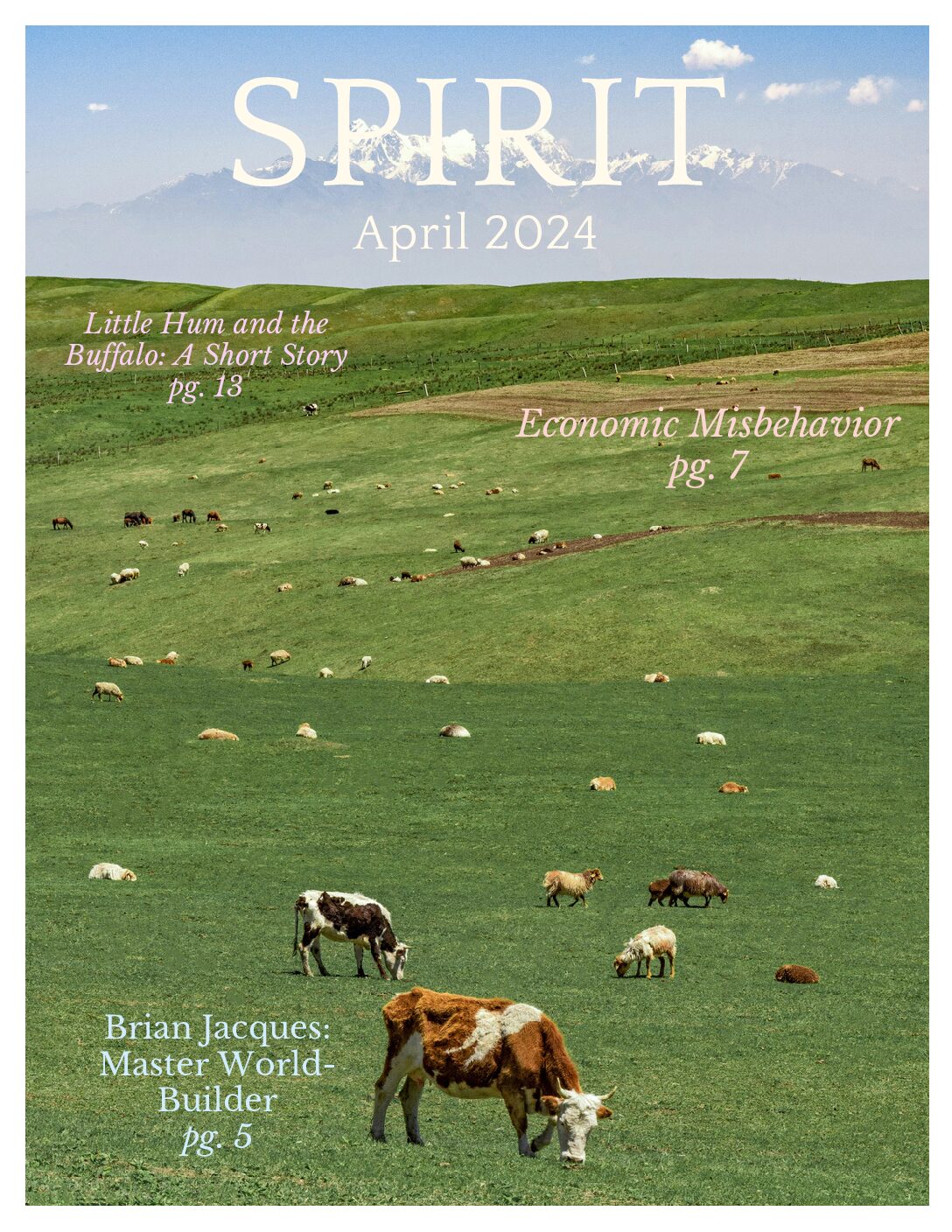Miracle On Ice (1980)
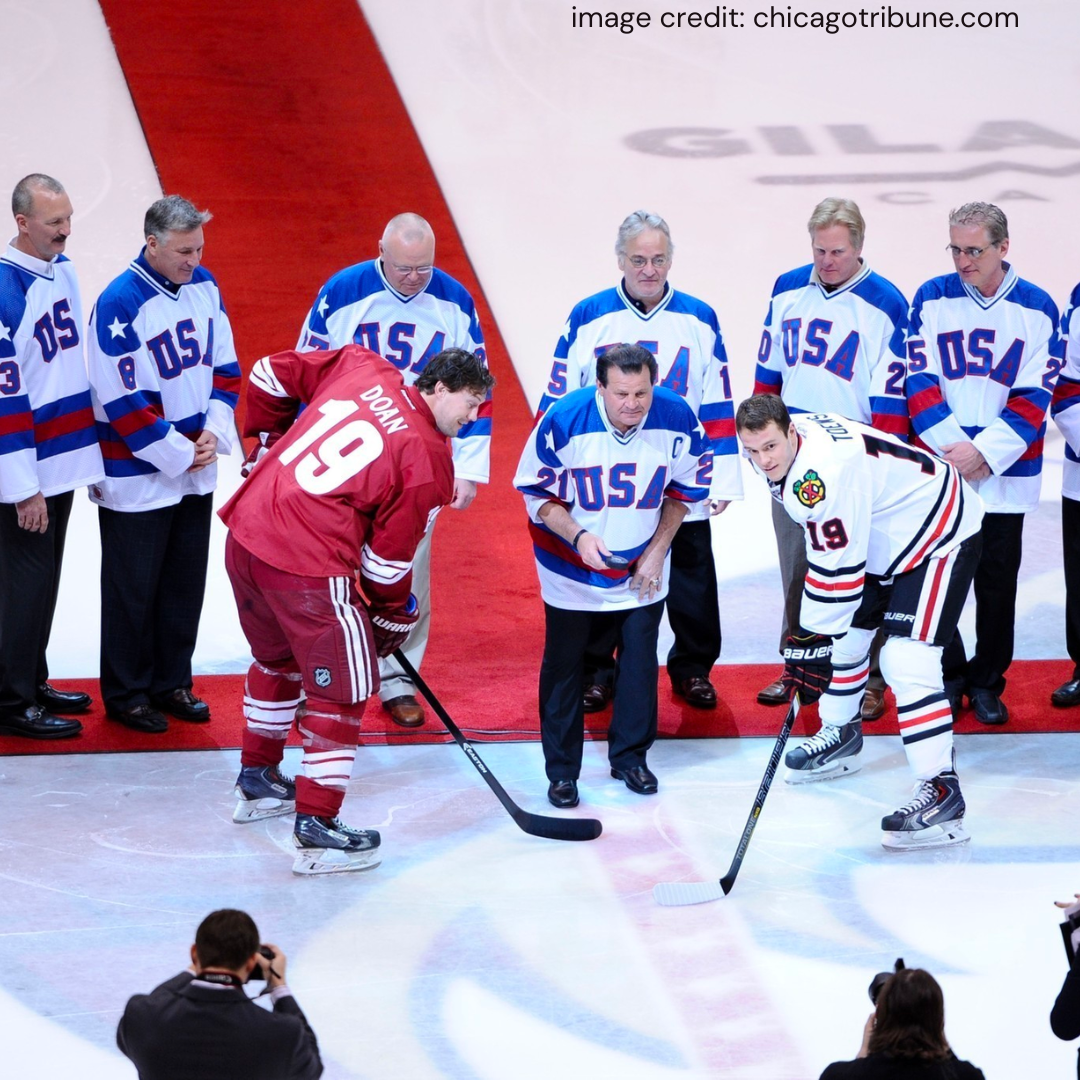
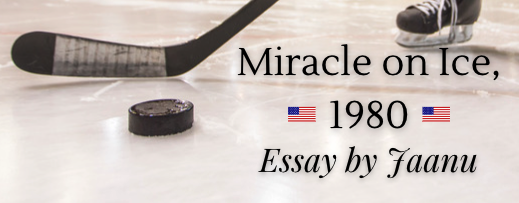
Prompted by an instance when I had to argue that the 1980 Miracle on Ice was the greatest event in history – as it is truly a Great event, this wasn’t too hard.
The biggest story in the sporting world this March was the unexpectedly brilliant performance of fifteenth seeded March Madness team, the Saint Peter’s University Peacocks. The Peacocks’ startling survival to the Elite Eight round, with upsets against top seeded teams like the University of Kentucky, skyrocketed the team to fame. What is it about underdog stories that captures the minds of any audience? 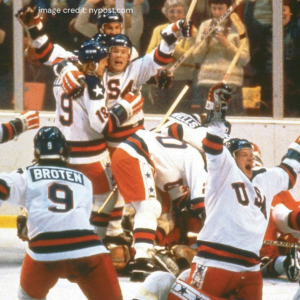 The American victory over the Soviet Union at Lake Placid in the 1980 Winter Olympics is the greatest hockey story ever told, the greatest US Olympic victory until date, and the most pivotal event in human history. Conditions converged in that moment in a veritable perfect storm – as Lou Vairo, US Hockey scout for the 1980 team, would later say, “they shocked the world, they beat the Soviets during the hostage crisis, and they did it on American soil at Lake Placid.”
The American victory over the Soviet Union at Lake Placid in the 1980 Winter Olympics is the greatest hockey story ever told, the greatest US Olympic victory until date, and the most pivotal event in human history. Conditions converged in that moment in a veritable perfect storm – as Lou Vairo, US Hockey scout for the 1980 team, would later say, “they shocked the world, they beat the Soviets during the hostage crisis, and they did it on American soil at Lake Placid.”
The 1980 US Olympic hockey roster was an uncommonly young one. Most players were 21 or younger, having been plucked from college hockey seasons to compete for Coach Herb Brooks, who himself coached the University of Minnesota Gophers. 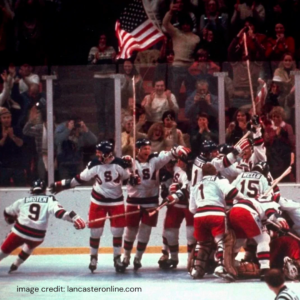 By contrast, the Soviet team was an international powerhouse, with best-in-class athletes such as Vladislav Tretyak, the world’s “greatest goalie,” and steely captain Boris Mikhailov; most of the Soviet athletes had been playing together for fifteen years. The Soviet team had crushed the NHL All-Stars during World Championships and had won four consecutive Olympic hockey golds in the preceding decades. According to Mike Eruzione, captain of the 1980 Olympic team, “Nobody thought we could win that game.”
By contrast, the Soviet team was an international powerhouse, with best-in-class athletes such as Vladislav Tretyak, the world’s “greatest goalie,” and steely captain Boris Mikhailov; most of the Soviet athletes had been playing together for fifteen years. The Soviet team had crushed the NHL All-Stars during World Championships and had won four consecutive Olympic hockey golds in the preceding decades. According to Mike Eruzione, captain of the 1980 Olympic team, “Nobody thought we could win that game.”
The matchup was significant for more than being an underdog story. The historical context of the 1980 US v. USSR Olympic faceoff gave the game political implications. It was a collision between worlds, red versus red, white, and blue, Communism versus democracy. The 1980 Winter Olympics took place during the height of the hostage crisis and Cold War tensions; the Soviet Union had invaded Afghanistan in 1979, and the “arms race” of the United States and the Soviet Union to amass nuclear weaponry was dividing the world.
As King Henry proclaims at the battle of Agincourt in Shakespeare’s Henry V, “all things are ready if our minds be so.” The American team ran drills hundreds of times, preparing for the inevitable strain of the Olympic Games. Their mental and physical conditioning offered stamina to outshoot the Soviets, who wore down opposing teams by the third period. Learning hockey the right way made every defenseman a scorer, and every forward a defenseman – and the values of patriotism, perseverance, and discipline within the team helped them to develop a bond which was reflected in the synergy and united, invulnerable style of their play. They did it right, setting a standard of greatness that can be applied to any endeavor.
The Americans won a 4-3 victory against the Soviet Union in what is considered the most “monumental upset” in hockey history. A chant of “U-S-A!” filled the Olympic arena in Lake Placid as announcer Al Michaels cried, “Do you believe in miracles?”, thereby immortalizing the great game as the 1980 Miracle on Ice. According to longtime high school coach and teacher Charles Adamopoulos, who watched the game as a college student in 1980, the Miracle was “a good pick-me-up for the 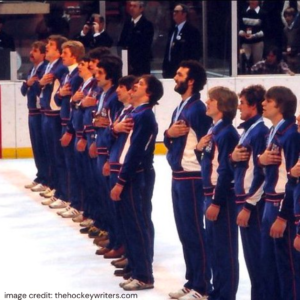 country,” inspiring “patriotism” and hope in light of a tense political climate.
country,” inspiring “patriotism” and hope in light of a tense political climate.
The prevalence or lack thereof of the Miracle on Ice on the public’s mind cannot lower its objective value as history’s greatest event. The moment can never be replicated. It is a reminder that an effort is strengthened when a team comes together, with a cause to fight for. The 1980 Miracle on Ice American victory is a seminal event in the history of hockey and in the history of the world. As Herb Brooks once said, “great moments are born of great opportunity.”



